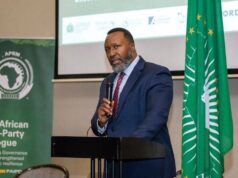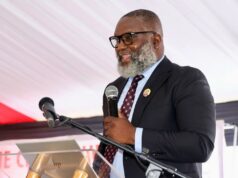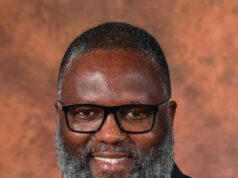The G20 Anti-Corruption (ACWG) Ministerial convention that concluded on Thursday will go a long way in enabling the fight against corruption and other criminal activities, says Justice and Constitutional Development, Minister Mmamoloko Kubayi.
According to Minister Kubayi, the fight against corruption needs eternal vigilance and continuous sharpening of anti-corruption tools. She told the G20 Anti-Corruption Ministerial meeting that last week, South Africa together with 71 other countries signed the United Nations Convention against Cybercrime in Hanoi, Vietnam. This she strongly believes marked a pivotal and timely milestone in the international community’s efforts to confront this evolving threat.
“As the first global treaty on cybercrime, it establishes a comprehensive framework for international cooperation mutual legal assistance harmonisation and capacity-building ensuring that all states are better equipped to prevent investigate and prosecute cyber offences.
“This convention too shall go a long in enabling the fight against corruption and other crimes. To effectively combat corruption, there must be a shared commitment from multi-stakeholders including stronger partnerships between the public sector private sector civil society and academia consistent with domestic laws of each of our countries. Corruption just like organised crime, is often hidden secretive and complex involving multiple actors’ networks and jurisdictions,” she said.
Protection of whistleblowers
Minister Kubayi said the protection of whistleblowers in the fight against corruption is of paramount importance if they want their efforts to be more effective and impactful.
She further said corruption is a cross-border crime that requires multilateral and multi-country through which it can be combated. “Our participation in this gathering is demonstration of the need to increase and strengthen collaboration and the efforts to fight corruption.
“We must by working closely together as countries increase the efficiency of asset recovery and the use of innovative and flexible methods to recover stolen assets.
“I believe that if we increase our efforts in ensuring that those who divert public resources for private benefit are deprived of the usage of these resources it will serve as a huge deterrence against acts of corruption,” she said.
According to the Minister countries still face many obstacles and challenges in implementing an effective asset recovery framework.
She said these challenges arise due to the need to navigate foreign legal systems, multiple jurisdictions with countries having different laws, procedures for the tracing freezing confiscating recovery and return of the proceeds of crime.
This Minister Kubayi said can lead to difficulties in planning and prioritising asset recovery steps on the requesting side and delays or unresponsiveness on the requested side.
“Through close collaboration these hurdles can be overcome. In a world in which technological changes are constantly changing the way we interact with each other work and transact anti-corruption has become a continuous process by which different actors work through various means to minimise the impact of corruption in society politics and the economy,” she said.
Artificial intelligence has become a powerful tool for malicious impersonation and corruption, which Minister Kubayi said it enables scammers to generate highly convincing text audio and video leading to sophisticated and scalable attacks that are difficult for both individuals and organisations to detect.
“This means that our anti-corruption strategies also must incorporate latest technologies including artificial intelligence to improve detection and prevention,” she said.









